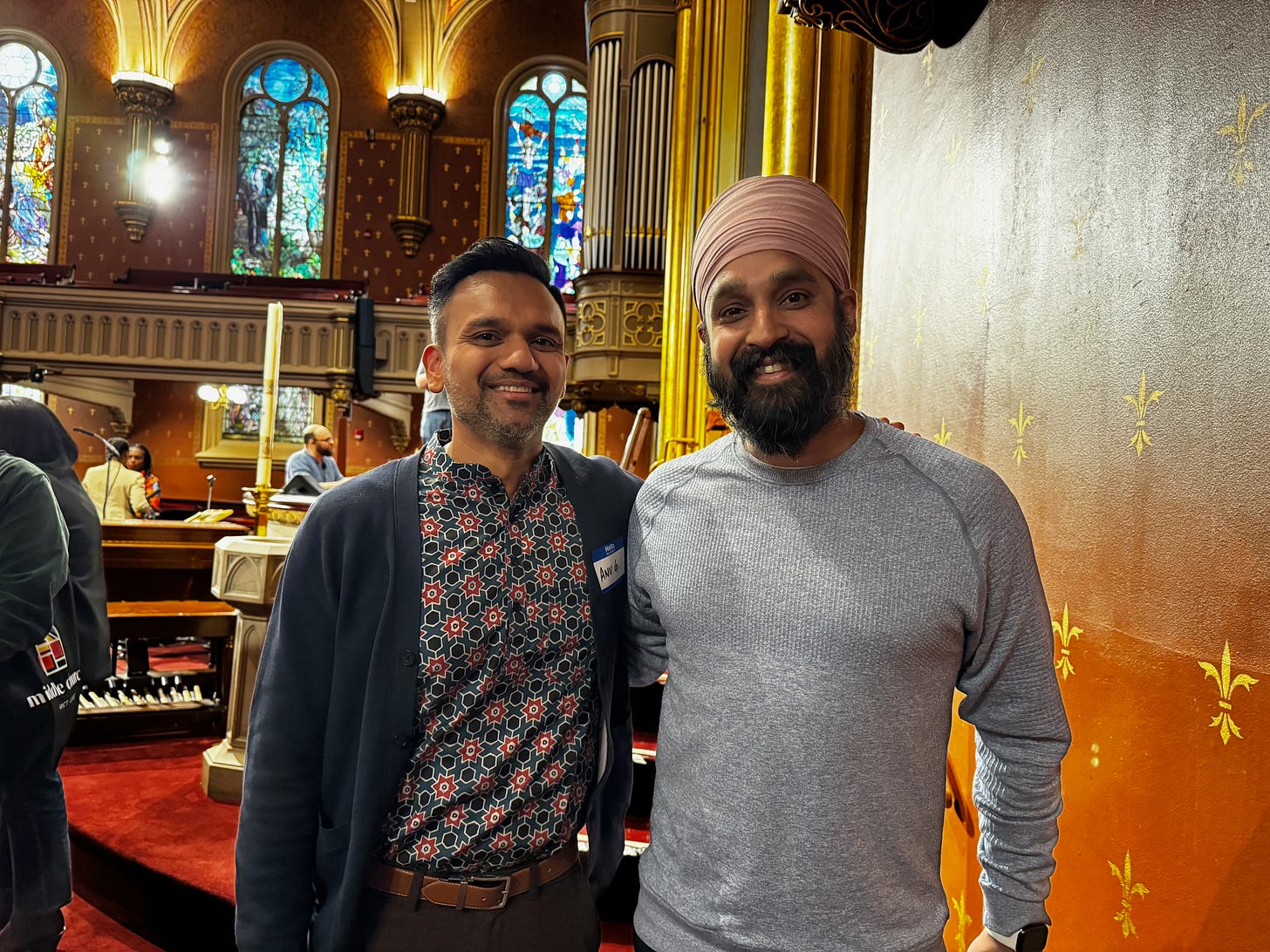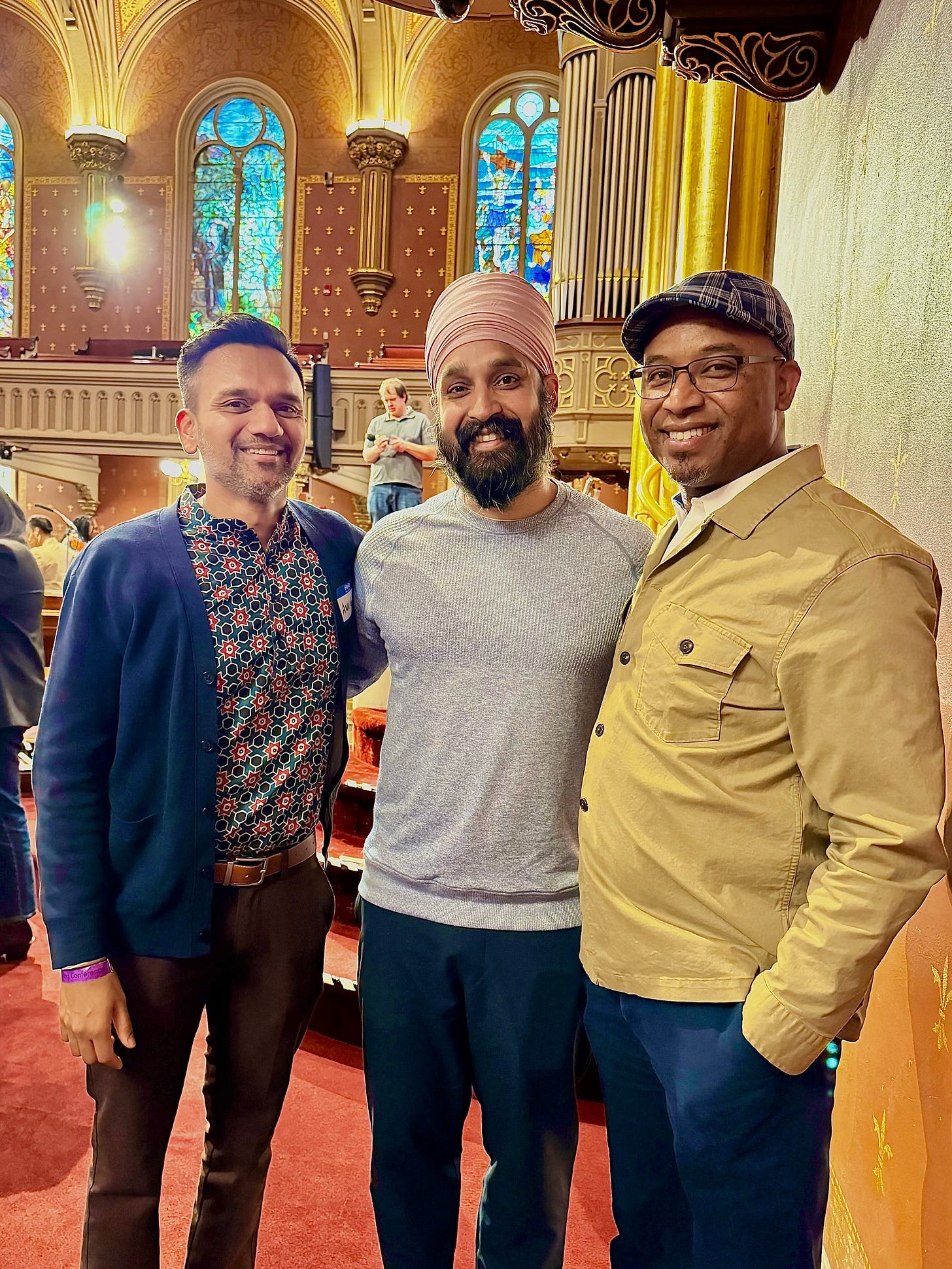About a decade ago, a number of activists gathered together in upstate New York to talk about faith and justice, and to connect with one another. I met a lot of people then that I’m still close with now, and I had a lot of thought-provoking conversations.
For one of our breakout sessions, I sat in the grass on a hill with a new friend, Anu Gupta, to discuss a topic we were both passionate about. How could we help ameliorate racism?Not many conversations stick with me for ten years, let alone ten days, but this one did. It was so enriching and delightful, to talk and imagine openly. I specifically remember our discussion on the value of historicizing race and racism — If people just knew the story of how people created racist ideas, wouldn’t it be easier to discard them?
Over the years, both Anu and I have moved along in our journeys, both continuing to work on these issues, and crossing paths from time to time at events, conferences, and speaking programs. I’ve loved watching his growth, and his continued commitment, to addressing human prejudices.
This past week, Anu released a new book right along these lines: Breaking Bias: Where Stereotypes and Prejudice Come From — And The Science-Backed Method to Unravel Them. I love this, especially because he brings in ideas from the Buddhist teachings and practices that have guided him. After reading his book, I felt moved to bring him to the podcast so that listeners could learn from his work on how mindfulness practices can help us break bias.
Here’s a few excerpts from our conversation, beginning with a reflection on mindfulness and meditation, and then moving to Anu’s experience growing up Hindu and moving towards Buddhism. To hear the whole conversation, check out the full episode of Wisdom and Practice here.
Simran: So what does it look like for you to be connected, to be mindful, to amplify your awareness? How does that happen in your practice?
Anu: Yeah, it's a beautiful question. So I think there's a difference here around meditation and mindfulness. So meditation is a vehicle to cultivate mindfulness because it helps us close our eyes, go inward, and begin the practice of noticing, of remembering what's happening in the mind, what's happening in the body.
But meditation isn't a prerequisite to practice mindfulness. We could practice mindfulness anytime. So I feel like mindfulness, for me, is really about that moment to moment awareness of what's going on, what we're really taking in from the external world. So if we're walking, we're aware that we're walking. If we're washing the dishes, we're aware that we're washing the dishes. And the mind is really present here.
Simran: Are you still practicing the same Hindu traditions you've received from your mother and grandmother?
This idea of this faith in God, is that something that you carry with you too? Or how has that stayed the same? And what might have changed for you?
Anu: Yeah, it's such an interesting question because I feel that for most of my life, I was scared to fully embrace this title of being a person of faith. But I think ever since I started school, even in India and of course moving to the U. S., the faith that I was brought up with wasn't fully appreciated, right? It was seen as demonic and satanic. And a lot of times I believed them because of the scientific and colonial language that was placed upon it and just how deeply entrenched these stories are even in the minds of people who are from subordinated identity, in this case South Asians, about our own selves.
So I think for me, I believed I had this faith, but I didn't really understand it fully outside of the rituals and the practices. And that's one thing I wasn't taught very much about–the whys and the hows of my faith tradition.
To listen to the full episode from Wisdom & Practice, please click here. To learn more about Anu and to order his book, please click here.




